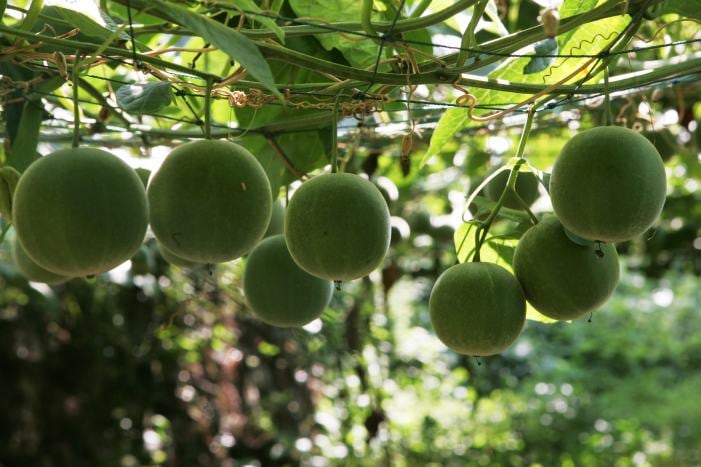“We are pleased with the ramp-up efforts,” said Kellie Hardin, global category manager of sweeteners and beverages at Tate & Lyle, which markets and distributes Purefruit. “Several major brands have entered the monk fruit space within tabletop sugar substitutes, which has helped drive consumer awareness. That’s in addition to a significant increase in consumer media focus on monk fruit extract and the fact that more and more market products contain monk fruit extract.”
Monk fruit, also known as luo han guo, is native to Southeast Asia and produces a sweetener roughly 200 times sweeter than sugar. Its visibility in the food & beverage market got a lift in 2011, when New Zealand-based BioVittoria entered an exclusive global marketing and distribution agreement for its monk fruit extract with Tate & Lyle, which markets the product as Purefruit. Purefruit’s incorporation into Nectresse, a tabletop sweetener introduced last summer by McNeil Nutritionals, raised monk fruit’s profile as an industrial-scale sweetener and spurred extensive media coverage positioning the extract as a viable alternative to the stevia-derived sweetener Reb A.
Potential in yogurt, non-dairy beverages
Purefruit has charted the most growth in beverages, tabletop, frozen novelties, and bakery and cereals—with strong potential in the yogurt and snack categories. Hardin noted that monk fruit extract solves the “pronounced bitterness” of Reb A in the zero-calorie natural sweetener category, making it a great fit for yogurt formulations in particular. Purefruit’s concentrated sweetness also makes it a good fit for protein shake formulas (and the extract is being used by several brands), because it helps conceal the “bitter” and “off” flavors often associated with nutritional formulas.
“Interestingly, within beverages, dairy- and dairy alternative-based beverages, such as coconut and almond milk, are growing as rapidly as juice- and water-based ones,” Hardin said, adding that Purefruit performs well in low-acid beverages in which the bitterness of Reb A-based sweeteners would be much more pronounced.

“We have a chocolate milk prototype we like to show to our customers where we’ve replaced the sugar entirely with our Purefruit Select product, and the sensory shows no significant difference on flavor acceptance and overall acceptance. You can reach a higher level of sweetener replacement and higher levels of overall sweetness than you can with Reb A.”
Although, weight for weight, monk fruit is more expensive than stevia, cost-in-use continues to decrease as demand and scaling up continue. Moreover, Hardin argued that it doesn’t necessitate formula-tinkering or added extracts to mask those flavors, which can drive up production costs and result in increased prices.
That, coupled with growing consumer interest in buzzwords from "natural" to "zero-calorie" means the future looks bright for monk fruit extract.
“Because many consumers continue to seek out foods and beverages that are lower in calories and some are looking for sweeteners from a natural source, we believe the desire for zero-calorie natural sweetener options will continue to grow,” Hardin said. “Label reading has increased, and consumers are savvier than ever in the digital age where information is at their fingertips.”
